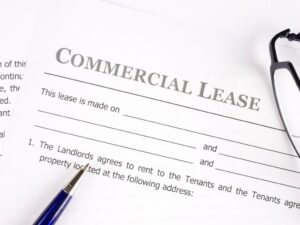
When entering a commercial lease for a property in Florida, it is essential to understand the contractual relationship you are entering into fully. Part 1 of the Florida Landlord and Tenant Act governs commercial leases. Florida strictly enforces these leases and does not give tenants as easy a way out as some other states. Landlords, too, have a great responsibility to fulfill their end of the contract. There are several key considerations that businesses should consider before leasing. Similarly, landlords should consider a range of factors as well.
At BrewerLong, our experienced attorneys can provide valuable insights for parties on either side of a commercial lease. We exist to provide our clients with clear and approachable advice to guide them through complicated legal situations. Our firm has a reputation for providing exemplary customer experience. Contact us today to schedule a consultation.
Key Considerations for Businesses Leasing Land for Commercial Use in Florida
Signing a lengthy commercial lease is one of the most significant risk factors companies face. Unlike other costs, rent must be paid whether the business is open. Due to the elevated risk, business owners should carefully analyze every commercial lease. This analysis should include thoughtful consideration of several vital factors.
Suitability of the Leased Space
First, the space must be well-suited for a business’s primary function. For example, a property off the beaten path might not be well-suited for a retail business that relies on customer traffic. In some cases, improvements can be made to the leased property to better serve a company’s needs. Carefully analyze the suitability of the space before even entering into negotiations.
Responsibilities for Improvements, Repairs, and Maintenance
If a space must be improved to be suitable for business operations, who pays for the improvements is a critical point of negotiation. While the business will benefit immediately from the improvements, the landlord usually owns the upgrades if the tenant leaves. Additionally, it is vital to clearly articulate which party is responsible for repairs and maintenance in the lease agreement. Landlords and tenants have plenty of leeway in dividing these responsibilities.
Terms of the Lease
When it comes to contracts, the devil is always in the details. The terms set by the lease will govern the landlord-tenant relationship moving forward. Key terms to look out for in a commercial lease include:
- Size of the deposit,
- Conditions for returning the deposit,
- Amount of rent due,
- When rent is due,
- Penalties for late rent,
- Permitted uses for the premises,
- Dispute resolution provisions,
- Whether subleasing is an option,
- Provisions for early termination of the lease, and
- Who is responsible for different types of insurance coverage.
Each business has different needs regarding the key terms of a lease. An experienced attorney from BrewerLong can help ensure a commercial lease best protects your interests.
How the Space Is Shared
Many commercial leases involve malls or other shared retail spaces. When a retail space is shared, it is essential to pay close attention to how it is shared. Leases can govern the dynamics of how adjacent properties can be used. For example, a pub owner might negotiate that no other tenants in the space can sell alcoholic beverages as part of their lease. Parking rights are also a significant consideration. All landlords should fully understand the rules surrounding their leased property.
Key Considerations for Landlords Leasing Florida Land for Commercial Use
Landlords also face a substantial risk when leasing commercial spaces in Florida. A lousy tenant or disfavorable provisions in a leasing agreement can destroy the value of a property. For this reason, landlords must consider many factors.
Reliability of the Tenant
Finding a trustworthy and reliable tenant can be a major boon for landlords. An unreliable tenant, on the other hand, is often a nightmare. Landlords should perform in-depth due diligence on prospective tenants to ensure they will be reliable renters.
How the Space Will Be Used
Landlords must pay special attention to how tenants can use their leased space. First, certain uses can destroy the value of a property and make the space unsuitable for future tenants. Second, it is best if landlords attempt to reduce the potential for conflict between their tenants. Every lease agreement should clearly define what the tenant can and cannot do with the property.
Rent Structure
Any lease agreement should clearly define how and when the rent will be paid. Doing so helps landlords protect their rights and hold tenants accountable. A clear explanation of the amount of rent and when it is due will help a landlord enforce their rights in court.
Call BrewerLong Today
BrewerLong can help you protect your business’s interests when negotiating a commercial lease. Our skilled team will help you identify any critical considerations that you should include in the leasing agreement. We provide every client with the close personal attention they deserve and provide prompt and meaningful communication throughout the process. Schedule a consultation with a BrewerLong attorney now.
This blog post is provided on an “as is” and “as available” basis as of the date of publication. We disclaim any duty to update or correct any information contained in this blog post, including errors, even if we are notified about them. To the fullest extent permitted by law, we disclaim all representations or warranties of any kind, express or implied with respect to the information contained in this blog post, including, but not limited to, warranties of merchantability, fitness for a particular purpose, title, non-infringement, accuracy, completeness, and timeliness. We will not be liable for damages of any kind arising from or in connection with your use of or reliance on this blog post, including, but not limited to, direct, indirect, incidental, consequential, and punitive damages. You agree to use this blog post at your own risk. Regarding your particular circumstances, we recommend that you consult your own legal counsel–hopefully BrewerLong.


